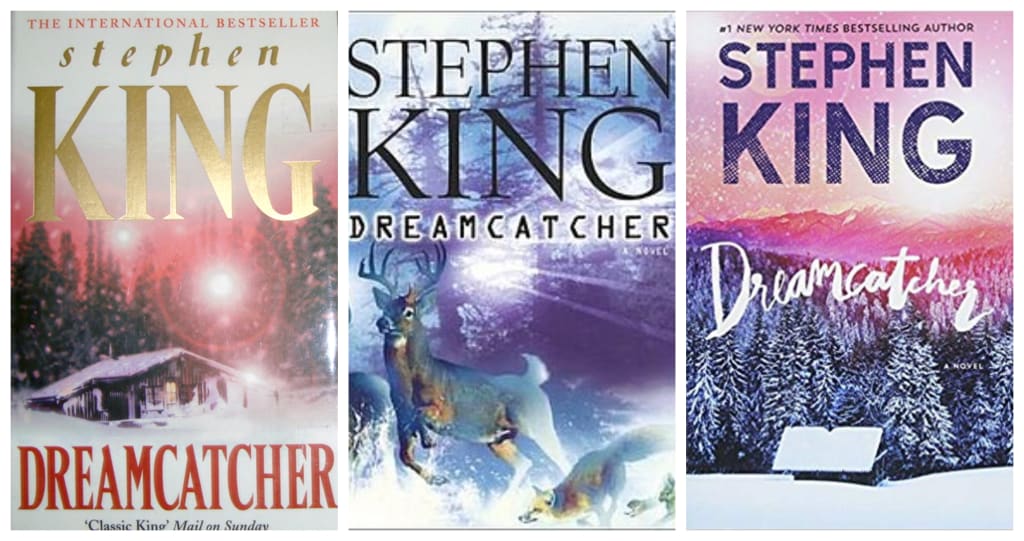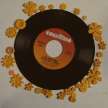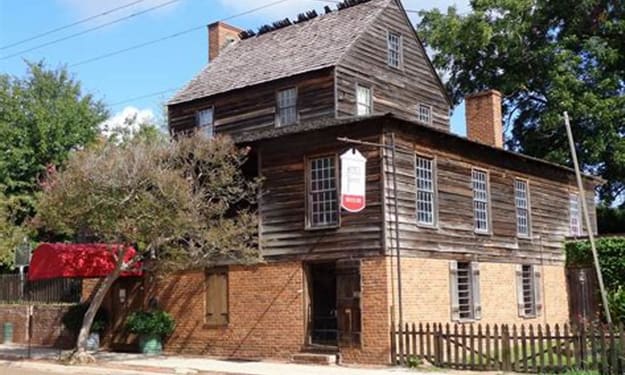Stephen King's Dreamcatcher - Looking past the Sh*t-Weasels
While the novel isn’t immune to problems, ‘Dreamcatcher’ is actually a secret little gem among King’s body of work.

“Jesus-Christ-bananas, The Beav said. Pete had once made a list of Beav-isms, and Jesus-Christ-bananas was high on it. Along with such standbys as doodlyfuck and kiss my bender.” (King, Stephen. Dreamcatcher: a Novel. Scribner, 2001.) Does that sound like a quote from a familiar classic novel? A literature masterpiece, perhaps? Well, of course it doesn’t. Rather that quote comes from the mouth of Pete Moore as he muses on the fellow-character they like to call; Beaver, in Stephen King’s ‘Dreamcatcher’. King is an extremely popular writer whose body of work is widely known as large & daunting. Among his total of around 63 books is that title 'the average-reader’ might not recognize. With such a large variety of work, it comes as no surprise that ‘Dreamcatcher’ seems to have been overshadowed by some of King’s more hit classics. How well could a book about aliens eating their way out of people in….a distressing way (to be discussed later) do when paired against ‘The Shining’, ‘The Stand’ or ‘IT’ (And both of those titles concern Derry, Maine)? The answer is pretty poorly in the eyes of most Stephen King fans & followers. ‘Dreamcatcher’ is often ranked at the bottom of King lists (both book & movie adaptation). While the novel isn’t immune to problems, ‘Dreamcatcher’ is actually a secret little gem among King’s body of work. The novel expresses the classic King trope of following a group of old childhood friends in an endearingly familiar yet new way. Which inherently gives the reader one of the most important pulls to a book; genuine care for the fictional characters. And that is very beneficial considering the story itself is founded in body horror that is actually effectively creepy. From this creatively creepy story, there are just so many odd details that really enhance the story in a genuinely charming way. This is a Stephen King book that is truly unique. It’s time to take a deep-dive into the reasons why the novel is underrated yet also explain the reason why everyone hates it for the wrong reason while ignoring the completely valid reason to hate it, which is seemingly it’s own unpopular opinion.
‘Dreamcatcher’ begins with a 50-page prologue which introduces the main players of the novel, who threaten the famous ‘Losers Club’ for the best King friendship title. Beaver Clarendon plays the familiar ‘funny-man’ character trope but completely makes the position all his own. The Beav is the heart and soul of the group and holds that ground even after his time is up. “Jonesy was touched in a way that only Beaver could touch him.” (King, Stephen. Dreamcatcher: a Novel. Scribner, 2001.) All five-foot-six of Beaver Clarendon is full of love and humor which masquerades his loneliness and warms his friends. He is a character that any reader can become endearingly close to; all of his problems are realistic and relatable. “You’ve got to be happy man. You got to be happy for all of us.” And that had been the first he knew that Beaver wasn’t-Henry and Peter , of course, about them there had never been a question. But the Beav?” (King, Stephen. Dreamcatcher: a Novel. Scribner, 2001.) Beaver shoulders most of the happiness for the group and does so in an achingly sweet way.
Not only does Beaver make his staple as the ‘funny-man’ who’s the center creator of the groups sayings (known as Beav-isms). Beaver also comes across as a secretive sweet young man and displays such when the group rescues Douglas Cavell, a child with Down Syndrome who will soon become their best friend, from bullies when they were young kids which inherently becomes the defining moment in their lives. Little Beaver Clarendon sings a sweet song to Douglas in the hopes that this new friend will find comfort even though it might be embarrassing to sing so sweetly in front of his friends. What really makes the sentiment though, is that Beav continues to do so whenever he feels Douglas needs him. “Pete hands the phone to Beaver, who looks around, then stretches the phone as far toward the corner of the wall as the cord will allow. Cupping his hand over the mouthpiece so the old men by the stove (not to mention his own old man, of course) won’t hear him, he sings the first two lines of the lullabye.” (King, Stephen. Dreamcatcher: a Novel. Scribner, 2001.) Beaver is a grounded and realistic character who builds a home in the heart of any reader.
Pete Moore is a man facing the problems of alcoholism who is avoiding the inevitable confrontation with the issue. Without much hesitation, the reader can identify or appreciate the trait of settling without their career dream that Pete struggled with. The melancholy way the reader gets to know Pete’s loss of not only his dream but also his acceptance of a lower-value of himself is all too familiar for many readers. “Dreams age faster than dreamers, that is a fact of life Pete has discovered as the years pass. Yet the last ones often die surprisingly hard, screaming in low, miserable voices at the back of the brain.” (King, Stephen. Dreamcatcher: a Novel. Scribner, 2001.) While Pete is later seen to be on the rambunctious side with Beaver, he shows his corners by facing his own great suburban showdown (a theme within each character-who all ache to go back to times of Derry & being with their friends) in the idea that his hope is gone with the wind. “He’s trying to tell some chick who’s as drunk as he is that once he really believed he was going to be the first man to set foot on Mars…” “Dreams are for kids…” (King, Stephen. Dreamcatcher: a Novel. Scribner, 2001.). Pete Moore represents the sad bitterness of settling that lives in most readers.
Following Pete’s introduction, comes Henry Devlin; a character who falls into the ‘hero that everyone is a little bit in love with’ King trope. But again, the tropes in ‘Dreamcatcher’ may come across as kitschy but they are also entirely their own in odd ways. Henry makes his living as a psychiatrist and spends his living dealing with hidden suicidal thoughts. Henry may fall in line with those ‘hero’ types with the likes of Bill Denbrough & Stu Redman, but he sets himself apart with an odd quirkiness that truly rounds out his character. “Bite shit and die.” Henry said--one of the Beav’s better efforts--and picked up the package ....”I come in peace for all mankind”, he said. “Who wants a hotdog?” (King, Stephen. Dreamcatcher: a Novel. Scribner, 2001.). How often is a reader going to meet a character whose first instinct when being caught is to pick up a package of snow covered, uncooked hotdogs and offer them to soldiers? Not often! Henry’s character journey is one of the most underrated in King’s character lineup as a whole. His growth from contemplating suicide after he sees his best friends in the world to a true hero is truly well-written. It also makes his later struggle to stay alive ironic yet endearing as he learns he wants to live.
The last character the reader meets in the prologue is known to his best friends as ‘Jonesy’. Gary Jones is a mild-mannered history teacher who’s introduction is quick to show his caring and kind nature; as he helps cover up for a student's cheating mistake. Jonesy is perhaps the closest to the good old ‘regular person’ in the novel. He’s not too odd and doesn’t fall victim to too many vices which is exactly why he ends up being the catalyst whose body invaded by the aliens. What makes Jonesy’s character so interesting compared to others by King, is the dual personalities he ends up being trapped in. This is a trope explored by King in the past with works like ‘The Dark Half’ but with Jonesy in ‘Dreamcatcher’...the relationship between him and Mr. Gray- the aforementioned alien- is oddly creative to say the least. There aren’t many books in the world where the main character is living in their ‘Memory-Warehouse’ (to be discussed later) while an alien takes control and feast on bacon in a diner. “He loved it all, but most particularly the bacon. Flesh! Jonesy heard him exulting--it was almost the voice of the creature in one of those corny old monster movies from the thirties.”(King, Stephen. Dreamcatcher: a Novel. Scribner, 2001.) And Jonesy is correct on that one, for ‘Dreamcatcher’ reads as a corny old monster movie itself, which is why the cheesiness works to its advantage.
Individually, each of those characters and Douglas; who will soon be discussed, are truly something special. But together, the gang is even stronger. Stephen King is known for great writing when it comes to young friends growing up together but the five boys in this novel love each other without shame in a way completely unique to them. No other group in King’s work has displayed such an honest non-toxic male friendship. While King is the master of ambigously gay duos, in ‘Dreamcatcher’ the arguement that eahc friend is a little bit in love with everyone else can truly be founded. “He will be with his friends, and that always feels like coming home.” (King, Stephen. Dreamcatcher: a Novel. Scribner, 2001.) Though there are some problematic details in this book, it’s worth the mention that these men love each other more than anything else in the world.
While the friendships in this novel are beautiful and could be fleshed out with more joy, it’s time to discuss the Sh*t-Weasels. Jonesy and Beaver encounter Richard McCarthy, a delirious stranger wandering outside of the lodge during a blizzard. The victim of an alien abduction, McCarthy displays more sick-symptoms and later dies while sitting on the toilet. An extraterrestrial parasite eats its way out of his body and later attacks. It’s pretty obvious as to why the ‘Sh*t-Weasels’ give the novel a bad reputation for being far too silly. But the body horror in the novel is actually terrifying when given a fair shot. “Jonesy saw Beaver sitting in the toilet with something that looked like a giant red-gold worm clinging to him. He called out and the thing turned toward him, no real head, just the black eyes of a shark and a mouthful of teeth. Something in the teeth, something that couldn’t be the mangled remains of Beaver Clarendon’s nose but probably was.” (King, Stephen. Dreamcatcher: a Novel. Scribner, 2001.). Though the idea of these creatures can seem silly to the childish reader, an alien eating it’s way out of a human body and bursting painfully from the skin is more than just chilling.
The creative and just plain strange quirks of ‘Dreamcatcher’ are what really give the novel staying power. There’s an attractive oddity in reading about a Sh*t-Weasels named Bowser who might even stay and chill to watch a movie, “There’s a movie I particularly want to see. You’ll enjoy it, too. It’s called Sympathy for the Grayboys. Bowser the remote! Bowser favors Jonesy with what seems a particularly ill-natured look, the slithers off the pillow.” (King, Stephen. Dreamcatcher: a Novel. Scribner, 2001.). Not to mention one of the novel’s main settings being the inside of Jonesy’s mind, referred to as the memory warehouse, where he can communicate with Henry by dialing 1-800-Henry, for the call to come through on a gun in the real world. “There was a pistol on the seat between them, a Glock. Henry picked it up, and when he did, the ringing stopped.” (King, Stephen. Dreamcatcher: a Novel. Scribner, 2001.). The overall strange and genuinely cheesy-old-horror-movie level of details in this novel set it apart from some of King’s classics in an eerily charming way.
While discussing the idea that ‘Dreamcatcher’ is unpopularly underrated, it’s also important to discuss why it’s hated. To bring this up may be contrary to the point but layered underneath the hate, is another unpopular opinion considering readers hate this novel for the cheesy Sh*t-Weasels when there is a actually completely valid reason to hate it for. And because every reader seems to neglect this reason, it becomes another unpopular opinion concerning this novel. Complicated but important. While the average reader complains about those people-munching Sh*t-Weasels, the real and valid reason one should hate this novel is due to the characterization of Douglas Cavell and the language surrounding him. People seem to be greatly offended by these creatures and it makes the book hard to read for them. But what is almost never mentioned or never fleshed out is the point that King wrote Douglas Cavell in a mostly inaccurate and, at times, offensive way. The language that is used to describe him can actually be hard to read. It’s important to remember that the book came out in 2000 and back then, some of the words were still being used as the correct terminology. However, some derogatory terms were being used excessively. Douglas’s own mother should be more sensitive to how people refer to her son. She says that sometimes she refers to her own son as a r*****. She doesn’t even refer to her son by his own name, instead calling him ‘Duddits’ which is a play on how he pronounces his name. It’s understandable for his friends but his mother…? And perhaps the worst is the chapter that Stephen King wrote which is supposed to be from Douglas’s point of view; If you do not have an intellectual disability, DO NOT try to write from the point of view of someone who does.
The point of this discussion is to say that though ‘Dreamcatcher’ isn't immune to problems, the novel is actually a secret little gem among King’s body of work. There is genuine heart and creative oddities that make this book worthwhile. The gang of buddies are a great example of a non-toxic male friendship that love each other in an endearingly familiar yet new way. Which inherently gives the reader one of the most important pulls to a book; genuine care for the fictional characters. And that comes in handy considering the story itself is made-up of body horror that is actually effectively & creatively creepy. This is a Stephen King book that is truly unique. And while it’s important to spread the word about this great story, it’s also important to explain the reason why everyone hates it for the wrong reason while ignoring the completely valid reason to hate it, which has ended up as a whole other unpopular opinion.
Moral of the story: ‘Dreamcatcher’ deserves better; more readers and appreciation. But Douglas Cavell also deserves better; for readers to point out the real issues instead of hammering on about the ‘Sh*t-Weasels’.
About the Creator
Jaime Burbatt
My name is Jaime, I'm 24 years old & my dream is to be an author






Comments
There are no comments for this story
Be the first to respond and start the conversation.